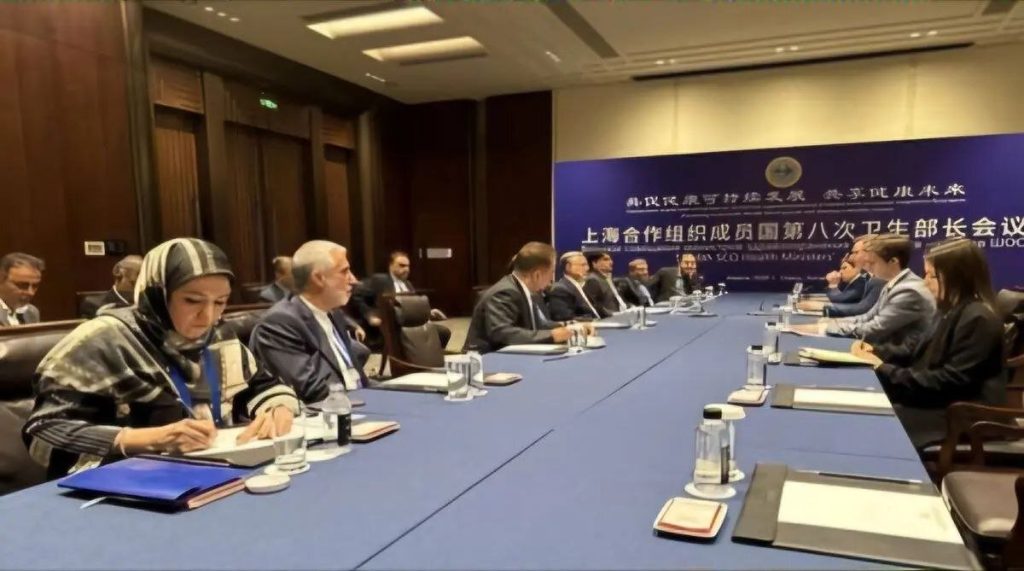Tehran and Moscow are making strides to strengthen their health cooperation, with discussions held during the eighth meeting of the Shanghai Cooperation Organization (SCO) health ministries in Xi’an, China, on Sunday. The health ministers from both nations explored ways to deepen ties in various health sectors, including disease prevention, pharmaceutical production, and education.
Russia’s Commitment to Boost Health Ties with Iran
At the meeting, Russia’s Deputy Health Minister, Salagay, expressed the country’s strong willingness to expand cooperation with Iran. He emphasized the importance of improving interactions between universities in both countries, particularly through student exchanges. Salagay also voiced his belief that signing a memorandum of understanding would pave the way for the implementation of these agreements.
Iran’s Vision for Collaborative Health Projects
Iran’s health ministry official, Zafarqandi, shared Iran’s vision for joint health initiatives. He highlighted the focus on tackling communicable and non-communicable diseases, producing pharmaceuticals and medical devices, and advancing modern health technologies. Additionally, he underscored the need for international-standard student training and the importance of hosting joint scientific conferences.
Health Cooperation Aligned with Strategic Partnership
The health discussions between Tehran and Moscow follow the signing of the Comprehensive Strategic Partnership Treaty between Iran and Russia. This agreement, signed in January by Iranian President Masoud Pezeshkian and Russian President Vladimir Putin, outlines the nations’ commitment to enhance cooperation across various sectors, including healthcare.
According to the treaty, Iran’s Deputy Health Minister Mohammad-Hossein Niknam and Hadi Goudarzi, the counselor at the Iranian Embassy in Russia, emphasized the importance of strengthening ties in research, education, and technology. Key areas for collaboration include establishing a joint committee, developing a network of universities, and providing platforms for Russian students to study in Iran.
Expanding Health Cooperation on Multiple Fronts
The strategic partnership aims to strengthen cooperation in several key health areas. This includes organizing and managing state-run health systems, preventing and treating diseases, protecting maternal and child health, and regulating the distribution of medicines and medical devices. Both nations will also focus on promoting healthy lifestyles, conducting medical research, and implementing digital technologies in healthcare systems.
In line with the agreement, the two countries will enhance their collaboration on professional training for health experts. They plan to exchange professors and students, share scientific and technical knowledge, and organize joint conferences and exhibitions. These efforts aim to improve the overall quality of healthcare and education in both nations.
Ongoing Commitment to Health Education and Research
The Iranian-Russian partnership also emphasizes the importance of higher education, science, and innovation. The two countries aim to implement joint scientific projects, share academic resources, and hold collaborative meetings to drive forward the development of their health systems.
With the support of both governments, these initiatives are set to lay the foundation for long-term cooperation between Iran and Russia in the health sector. The focus on student exchanges, research collaboration, and digital health technologies is expected to yield tangible benefits in the near future.
Looking Ahead: The Path to Stronger Health Ties
As Iran and Russia continue to strengthen their health cooperation, the agreement’s impact will likely be felt across various sectors. From public health management to cutting-edge medical research, both countries are poised to make significant strides in healthcare collaboration.
The partnership reflects a broader commitment to mutual growth and knowledge-sharing, with potential benefits for the global health community. As the two nations move forward with these initiatives, it will be essential to monitor the implementation of their plans and ensure that they meet the high standards set by both governments.


